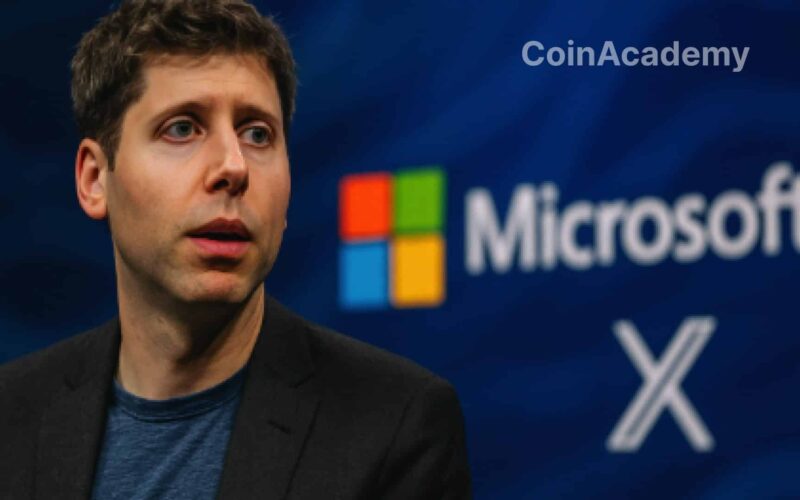Microsoft is not bluffing. The software giant is reportedly ready to walk away from negotiations with OpenAI, despite an alliance valued at several tens of billions. At stake: the transformation of the lab behind ChatGPT into a for-profit company, and the future of commercial artificial intelligence.
Microsoft has already invested over 13 billion
Since 2019, Microsoft has poured more than 13 billion dollars into OpenAI. A massive investment, allowing exclusive access to the company’s technology and up to 20% of the revenue generated by models like ChatGPT… as long as the cumulative revenue does not exceed 92 billion.
But the balance is delicate. OpenAI aims to move towards a more traditional structure, likely to raise more funds and go public. The problem: this shift to a for-profit model requires Microsoft’s approval. Without it, the start-up could lose billions in commitments, including from SoftBank, which threatens to reduce its investment by 10 billion if nothing progresses by the end of 2025.
Disagreements on equity, tech, and control
The two companies are fighting on several fronts. The main one: what share of the capital should Microsoft receive in the future structure? Discussions range from 20% to 49%, but no agreement seems close.
Behind this power struggle are also colossal technological issues. Microsoft does not want to give up its access to OpenAI’s models, nor its exclusive ability to resell them via Azure. On the other hand, OpenAI wants more autonomy, more computing power, and less dependence on Redmond. Tensions are high, particularly regarding access to the infrastructure and intellectual property of future models known as “AGI” (Artificial General Intelligence).
Microsoft is already preparing to live without OpenAI
The nuclear option? Microsoft has considered it: activating the current contract, which runs until 2030, without renegotiation. This would allow the company to continue using existing models… without yielding ground in the renegotiation of shares.
Meanwhile, Satya Nadella is forward-thinking: the company has already begun diversifying its AI partnerships. A notable example is the integration of the Grok model, developed by xAI (Elon Musk), into its cloud offering.
In summary: if the start-up does not comply, Microsoft could simply turn to others.
The future of ChatGPT is as legal as it is technical
Even with an agreement, the road ahead is fraught with obstacles. The conversion of OpenAI must be approved by the attorneys general of Delaware and California. And above all, it is threatened by a lawsuit filed by Elon Musk, supported by former employees.
In the meantime, OpenAI continues to grow. ChatGPT now has over 500 million weekly users. But behind the scenes, the start-up suffers from a glaring lack of computing power, hindered by tensions with Microsoft.
A strategic power struggle that reshapes the AI war
Microsoft, Google, Meta, xAI… The AI war is now being fought as much in courtrooms as on technical benchmarks. And in this game, the Microsoft-OpenAI alliance could very well explode in mid-air.




